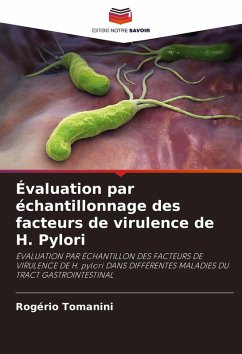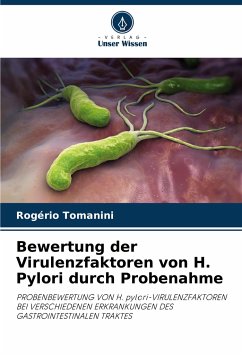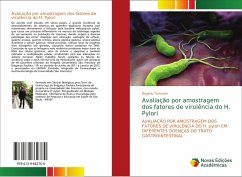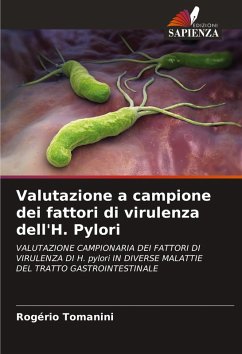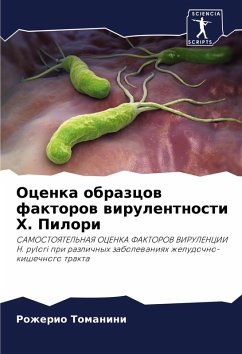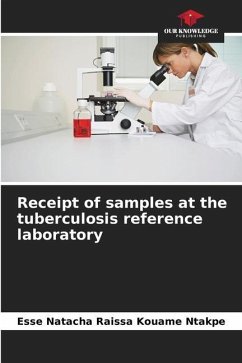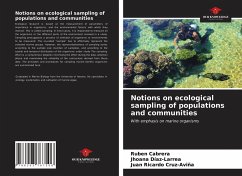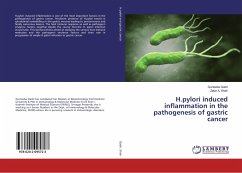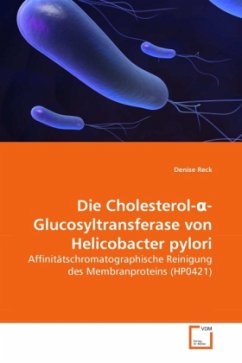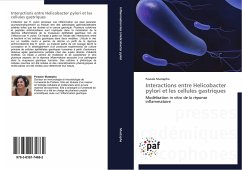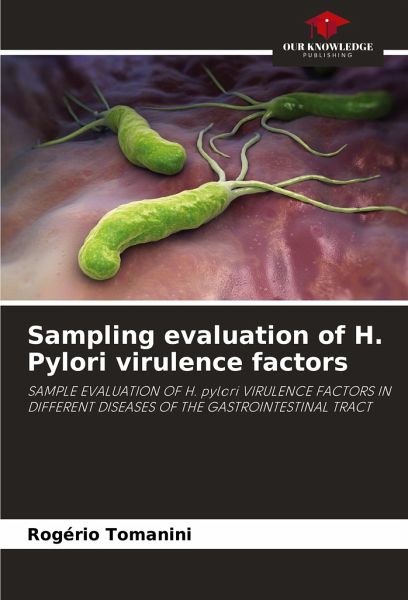
Sampling evaluation of H. Pylori virulence factors
SAMPLE EVALUATION OF H. pylori VIRULENCE FACTORS IN DIFFERENT DISEASES OF THE GASTROINTESTINAL TRACT
Versandkostenfrei!
Versandfertig in 6-10 Tagen
27,99 €
inkl. MwSt.

PAYBACK Punkte
14 °P sammeln!
According to studies in various countries, the high incidence of the development of diseases of the human digestive system is directly related to infection by the bacterium Helicobacter pylori, which causes an inflammatory process in the stomach mucosa followed by an increase in the production of cytokines, giving rise to various pathologies such as: dyspepsia without ulceration, reflux oesophagitis, erosive gastritis, chronic gastritis, gastric peptic ulcer, duodenal peptic ulcer and gastric cancer. In this process, oxygen and/or nitrogen free radicals are generated, causing oxidative damage ...
According to studies in various countries, the high incidence of the development of diseases of the human digestive system is directly related to infection by the bacterium Helicobacter pylori, which causes an inflammatory process in the stomach mucosa followed by an increase in the production of cytokines, giving rise to various pathologies such as: dyspepsia without ulceration, reflux oesophagitis, erosive gastritis, chronic gastritis, gastric peptic ulcer, duodenal peptic ulcer and gastric cancer. In this process, oxygen and/or nitrogen free radicals are generated, causing oxidative damage to DNA. It has been found that the most virulent strains produce greater damage to the DNA of gastric cells, as well as inducing apoptosis and also stimulating cell multiplication, thereby producing alterations in the turnover system. In this study, the cagA and vacA m1/m2-s1/s2 virulence factors of Helicobacter pylori were assessed in samples from 45 patients from the São Francisco University Hospital in Bragança Paulista / SP, from June 2011 to January 2012 and processed at UNIFAG (Integrated Pharmacology and Gastroenterology Unit of the University of São Francisco).





